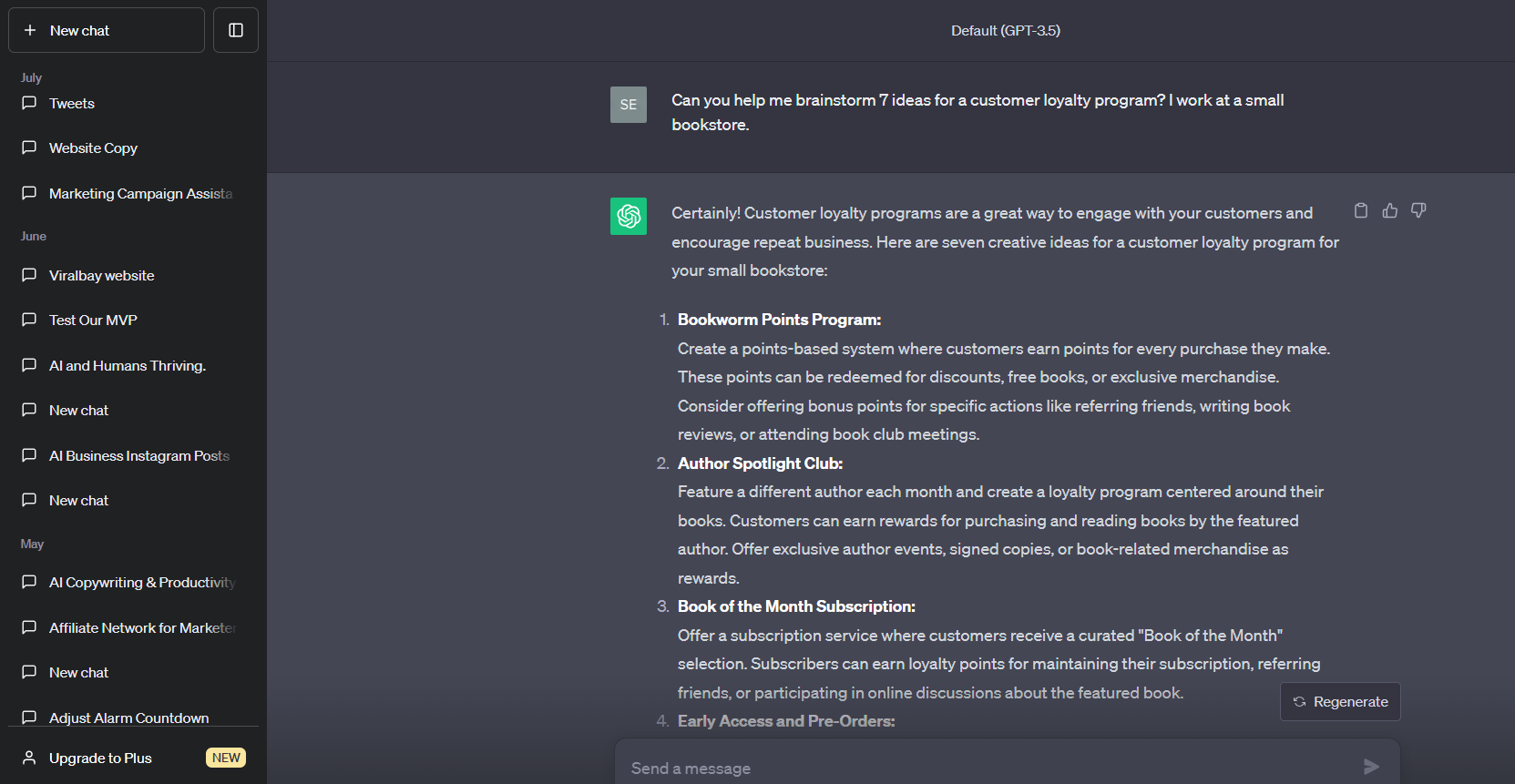Is AI a bubble?
September 18, 2023
Summary
- The AI field has witnessed unprecedented growth, driven by technological advancements, data abundance, substantial investments, and its adaptability across different industries.
- Concerns about an AI bubble revolve around the potential for inflated expectations, overvalued AI companies, and limited understanding among investors and businesses.
- Data quality and bias issues challenge AI's development, as biased or incomplete data can lead to flawed AI systems.
- Regulatory challenges, including privacy, ethics, and accountability, have emerged as AI becomes more integrated into society, creating the need for clear policies.
- The competitive landscape of AI may leave many startups struggling to survive.
- AI faces technical hurdles, like trying to make machines as smart as humans (called artificial general intelligence or AGI) and the resolution of complex real-world problems, which may require years or decades of research.
- However, there is a compelling counterargument that AI's growth is not a fleeting bubble but a long-term trend. This perspective is supported by sustained investments, gradual progress, widespread adoption, regulatory maturation, economic impact, research commitment, and integration into society.
- In conclusion, while concerns about an AI bubble are legitimate, there are substantial reasons to believe that AI's growth is a long-term and transformative trend shaping different aspects of our world.>

Artificial Intelligence (AI) has been a buzzword for quite some time now. From self-driving cars and virtual personal assistants to recommendation systems and medical diagnosis, AI has made significant strides in reshaping industries and daily life. However, with the rapid proliferation of AI-related startups, investments, and hype, the question arises: Is AI a bubble waiting to burst?
In this article, we'll talk about whether AI is like a bubble that might burst. We'll look at why AI has become so popular, what problems it faces, and what it means for different people. In the end, we'll try to answer: Is AI a bubble, or is it here to stay?
The unprecedented growth and enthusiasm
The field of Artificial Intelligence (AI) has experienced an unprecedented surge in growth and enthusiasm in the last year, especially due to advancements done by OpenAI. This remarkable expansion can be attributed to several key factors, each of them playing a big part in pushing AI to the front of technological progress.

Technological advancements
One of the major reasons AI has taken off so quickly is because technology has been getting better and better. Breakthroughs in machine learning, neural networks, and computing power have revolutionized what AI systems can do. These improvements have made AI algorithms smarter and better at handling huge amounts of information with incredible precision and speed. As a result, the performance of AI applications has been improved, allowing for new possibilities and applications across various industries.
Data availability
In the digital age, data has become the lifeblood of AI. The proliferation of the internet and the exponential growth of digital platforms have produced an abundance of data sources. AI systems thrive on data, using it for training, learning, and refining their algorithms. With so much data around, AI has a great environment to learn and become better at solving tricky problems and making decisions based on data.

Investment and funding
The growth of AI systems has been further fueled by substantial investments and funding from venture capitalists and tech giants. Billions of dollars have been poured into AI research and startups, driving innovation and accelerating the development and deployment of AI technologies. All this money and support have given AI pioneers the tools they need to explore new areas and do things with AI that we couldn't even imagine before. They're pushing the limits of what AI can do.
Applications across industries
AI isn't limited to just one kind of job or industry; it's super flexible. It's not stuck in one place but can work in lots of different areas. Whether it's in healthcare, finance, transportation, or even entertainment, AI can be used all over the place. This flexibility has not only made people interested in AI but has also led to lots of new ideas and cool stuff being made by businesses and organizations in many different fields who want to use AI to make things better.
Economic potential
AI isn't just exciting because it's getting better technologically. It's also exciting because it can help businesses a lot. It can make things happen automatically, save money, and make everything work more smoothly. Businesses are realizing that using AI can help them compete better. They're putting money into AI to make their work better and give their customers even better products and services. It's all about staying ahead in today's fast-changing market.
Media hype
The media has been a big part of why AI is so exciting. They tell stories about AI doing incredible things, like recognizing pictures and understanding human language even better than people. These stories have made a lot of people really interested in AI. Thanks to the media, more and more people know about AI and how it might change our future.

In summary, the AI boom is happening because several factors came together. There are new and better technologies, lots of data to work with, and a ton of money being invested, AI can be used in many different areas, it can help businesses save money and do better, and the media is really excited about it. All of these things have made AI one of the most exciting and promising technologies right now.
The AI bubble argument
Even though the AI boom has definitely given us amazing new technologies and changed the way we do things, it has also made some people worried that there might be a problem, like a bubble that could burst. These worries come from a few different things, and here's why:
Hype vs reality
Critics say that the way the media and businesses talk about it makes it seem better than it really is right now. They think that what people expect from AI is much bigger than what it can actually do at the moment. This can be a problem because when AI doesn't live up to these big expectations, people get disappointed. The media and industry leaders sometimes paint a really exciting picture of AI, but the reality is not always as amazing as they make it sound.
Overvaluation
The eagerness to invest in AI has led to concerns of overvaluation, particularly of AI startups and companies. This situation can give rise to an unsustainable bubble, wherein the market assigns AI companies valuations that far exceed their current revenue or technological maturity. When such valuations are not grounded in reality, the risk of a market correction looms.

Lack of understanding
A significant problem in the world of AI is that many investors and businesses don't fully understand how AI works and what it can and cannot do. This lack of understanding can lead to people having unrealistically high hopes and making investments without all the right information. This, in turn, can make the market more unstable and unpredictable, which is not good for anyone involved.
Data dependency challenges
AI systems heavily rely on data for training and decision-making. However, if the data used to train and test artificial intelligence models is biased, incomplete, or unrepresentative of the real-world context, it can lead to flawed AI systems that perpetuate biases or make incorrect predictions. Addressing data quality and bias is an ongoing challenge that the AI community is actively working to overcome.
Regulatory challenges
As AI becomes increasingly integrated into society, a complex web of regulatory challenges has emerged. Issues related to data privacy, ethics, and accountability must be tackled head-on. The development of comprehensive regulatory frameworks is essential to make sure AI is used responsibly and safely and to protect everyone in society.
Competition
The world of AI is super competitive, with lots of new companies trying to get a piece of the action. This intense competition might end up with only a few big companies coming out on top, while many of the smaller startups struggle to survive. This could cause some big changes in the AI industry and might affect how stable and how much it grows in the future.
Technical challenges
Even though AI has made amazing progress, it still has some big challenges to overcome. One of the biggest challenges is achieving what's called "artificial general intelligence" or AGI, which means making AI systems as smart as humans in learning and problem-solving. That demands ongoing research and innovation that could span years or even decades.
These challenges and uncertainties are part of why some people think there might be a bubble in AI. Even though AI is doing amazing things, we still have a long way to go. It's important to be careful and responsible as we continue to develop AI technology.
.png)
The counterargument: AI's long-term potential
While some people worry that AI might be like a bubble that could burst, there are good reasons to think it's here to stay for a long time. Here are some reasons why:
Real impact and progress
AI has been getting better bit by bit over many years, especially in areas like machine learning and neural networks. This means that even if there are times when progress is slower or things don't go perfectly, the overall direction is still moving forward and getting better. AI is already making a significant impact in various fields, including healthcare, finance, and transportation. As these applications mature and expand, they are likely to become integral parts of our daily lives.
Real impact and progress
AI has been getting better bit by bit over many years, especially in areas like machine learning and neural networks. This means that even if there are times when progress is slower or things don't go perfectly, the overall direction is still moving forward and getting better. AI is already making a significant impact in various fields, including healthcare, finance, and transportation. As these applications mature and expand, they are likely to become integral parts of our daily lives.
Economic imperative
Many businesses believe that using AI is crucial for staying competitive in today's digital world. They feel the need to keep improving and making their work more efficient, which is why they keep investing in AI. This pressure to innovate and work more efficiently will keep driving investments in AI.
AI ethics and accountability
The growing awareness of AI ethics and accountability issues is pushing the industry and policymakers to address these concerns. This could lead to a more responsible and sustainable AI ecosystem.
Cross-disciplinary collaboration
AI is increasingly becoming a multidisciplinary field, with collaboration between computer science, neuroscience, and other domains. This cross-disciplinary approach could lead to breakthroughs that accelerate AI development.

Global investment
Investments in artificial intelligence are not limited to a single region; they are happening worldwide. This global interest and collaboration may help diversify the AI ecosystem and reduce the risk of a localized bubble.
The Role of regulation and ethics
One of the key factors that will determine whether AI is a bubble or a sustainable trend is the role of regulation and ethics. As AI technologies become more integrated into society, it is crucial to establish guidelines and frameworks that ensure responsible AI development and deployment.
Regulation can help address concerns related to bias in AI algorithms, data privacy, and accountability for AI-driven decisions. Ethical considerations, such as transparency, fairness, and the avoidance of harm, must also be central to AI development. How will new copywriting policies limit the training of AI models? How will AI affect education since every student has access to it? How to regulate the misuse of AI in, for example, scams? All questions of this nature have to be answered to ensure that this technology brings only positive to this world.
Furthermore, international cooperation is essential in addressing global AI challenges. Collaboration between governments, academia, and industry can lead to the establishment of common standards and norms for AI.
The importance of real-world use cases
To assess whether AI is a bubble or a long-term trend, it is essential to look at real-world use cases and their impact. While hype and investment can create bubbles, tangible results in solving complex problems and improving lives indicate the true value of AI.
To assess whether AI is a bubble or a long-term trend, it is essential to look at real-world use cases and their impact. While hype and investment can create bubbles, tangible results in solving complex problems and improving lives indicate the true value of AI.
These real-world applications demonstrate that AI is not just a theoretical concept but a practical tool that can bring about significant positive change.
AI's future beyond the hype
In conclusion, the question of whether AI is a bubble depends on how one views its trajectory. While there are valid concerns about hype, overvaluation, and challenges in the AI landscape, there is also a strong argument for AI's long-term potential.
AI's growth is not driven solely by speculation but by a series of technological advancements, real-world applications, and economic imperatives. However, to ensure that AI remains a sustainable and transformative force, it is essential to address issues related to ethics, regulation, and accountability.
From Workki’s side, we can say that we see a bright future in the AI trend. We believe that AI will allow people to achieve much more. Yes, some jobs will go away, but the rest will be improved significantly and new standards will be created. For example, in Workki our goal is to allow for better collaboration of people with our AI Virtual Assistant at the workplace to ensure that the work is carried out as efficiently as possible.
Ultimately, whether AI is a bubble or a long-term trend will be determined by how effectively we navigate the challenges and opportunities it presents. If managed wisely, AI has the potential to reshape industries, improve our quality of life, and contribute to a more technologically advanced and equitable world.